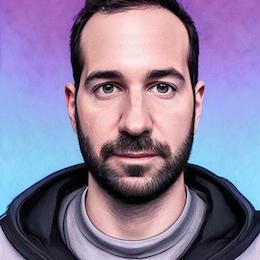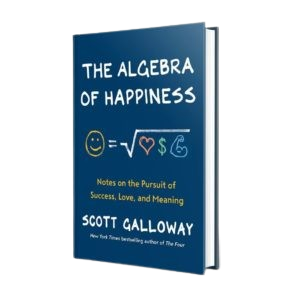
Scott Gollaway is an entrepreneur and professor of marketing at NYU Stern Business School. The Algebra of Happiness contains his ramblings and life advice on success, love and happiness.
- On success:
- The trait most common among CEOs is that they exercise regularly.
- The definition of “rich” is having passive income greater than your burn.
- Big cities are Wimbledon, even if you aren’t Rafael Nadal, your game will improve by being on the court with him.
- On happiness:
- Being “in the zone” is happiness.
- On a balanced scorecard, the happiest people are those in monogamous relationships who have children.
- On love:
- The most important decision you’ll make is not where you work or who you party with, but who you choose to partner with for the rest of your life.
- Like someone who likes you.
- Male monkeys have higher ranks and more mating success if they have more social bonds, rather than being bigger or stronger.
- Love and relationships are the ends, everything else is just the means. In the end, relationships are all that matters.
What resonated with me was the overwhelming importance of relationships in our happiness. This 10 minute video is a good summary of the main points in the book and will get you 80% there.
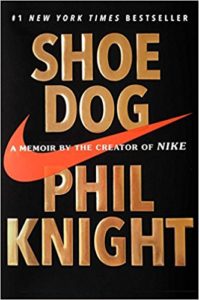
Shoe Dog tells the story of Nike from 1962 to 1980. It’s a memoir about early days of Nike by its founder Phil Knight. The book is such a page turner, the moment I picked it up, I couldn’t put it down before finishing. It’s very well written, and the story is exciting as well. The betrayals and attempts for hostile takeovers while doing business described in the book were scary, it reminded me the importance of making things, creating value and not depending on other companies.
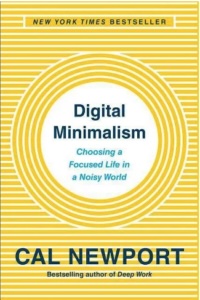
This is one of those could have been a blog post type of book. It can be summarized as:
- Spend alone time
- Take long walks without your phone to think
- Write down your thoughts as letters to yourself
- Messaging doesn’t reduce loneliness, you need face to face or verbal communication
- Don’t write comments on social media
- Hold conversation office hours (Ex: You can call me at 17:30 any day or have a regular coffee shop schedule)
- Reclaim leisure time
- Prefer demanding activities over passive consumption like watching TV or playing video games
- Create things in the physical world
- Do activities that involve social interactions (board games, crossfit, volunteering)
Some tips from the book Why We Sleep:
- Go to bed and wake up at the same time each day. Set an alarm for bedtime
- Exercise no later than two to three hours before bedtime.
- Avoid caffeine and nicotine.
- Avoid alcoholic drinks before bed.
- Avoid large meals and beverages late at night.
- Don’t take naps after 3 pm
- Take a hot bath before bed
- Dark bedroom, cool bedroom, gadget-free bedroom.
- Get outside in natural sunlight for at least 30 minutes each day.
- Don’t lie in bed awake. If you’re still awake after staying in bed for more than twenty minutes, get up.
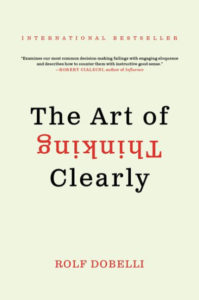
The Art of Thinking Clearly is a catalog of thinking errors when we make decisions. Here are some of my favorites from this book:
Swimmer’s Body Illusion:
- Professional swimmers don’t have perfect bodies because they train extensively. Rather, they are good swimmers because of their physiques.
- Female models advertise cosmetics. But it is not the cosmetics that make these women model-like. The models are born attractive.
Sunk Cost Fallacy: When we have invested a lot of time, money, energy or love in something, this investment becomes a reason to carry on, even if we are dealing with a lost cause.
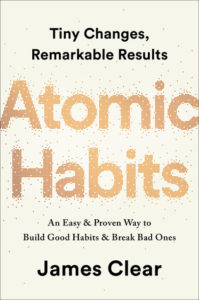
Atomic Habits offers practical advice on how to start new habits or get rid of bad habits. Here are some notes:
- Don’t underestimate marginal gains, if you get 1% better every day, you become 37x better in a year
- Your outcomes are a lagging measure of your habits: money (financial habits), weight (eating habits), knowledge (learning habits)
- People reflect your behavior back to you. The more you help others, the more others help you.
- Instead of setting goals, focus on having systems (goal: losing 10 pounds vs system: learning to eat well)
- Identity based habits: Focus is on who you wish to become
- read a book vs become a reader
- run a marathon vs become a runner
- learn an instrument vs become a musician
- The habit loop consists of:
- cue: signal reward (notice) -> make it obvious
- craving: acting force (want) -> make it attractive
- response: action (d0) -> make it easy
- reward: result (get) -> make it satisfying
- Be specific with your habits: I will [BEHAVIOR] at [TIME] in [LOCATION]
- Habit stacking: Start a new habit by doing it before / after an existing habit
- Environment matters: Drug addict soldiers stop their addiction when they return home from the war
- Two groups were given different tasks: a) Only take high quality photos b) Only take as many photos as you can. Best photos came out of the quantity group
- To visualize virtual progress, you can put physical objects things from one jar to another
- Reframe cues: Exercise as building endurance, saving money as increasing your future means
- To stop procrastination, scale down habits to their 2 minute version:
- “Read before bed each night” becomes “Read one page.”
- “Study for class” becomes “Open my notes.”
Overall, it was one of the most actionable, well written and interesting books I’ve read recently, highly recommended!

The Untethered Soul is a book on spirituality. A lot of the ideas in this book are an adaptation of Buddhist philosophy for a Western audience. It gave me a perspective on how to deal with my thoughts and emotions, and helped me understand what purpose meditation serves. I especially enjoyed the parts about happiness and death, they were good reminders. It’s interesting to note that the author, Michael A. Singer, was a software professional in medical industry. Here are some bits from the book that I want to remember:
Safi Bahcall, in an interview, talks about how Garry Kasparov’s success could be attributed to his post-game analysis technique. After a game, rather than looking at a bad move and trying to correct it, he would analyze how he arrived at that decision and what could be improved with his decision making process. This requires a shift from having an outcome mindset to a system mindset.
Instead of analyzing the outcome, going one step above and looking at the meta-level, which is the decision making process. The advantage with this approach is that once you adjust your process, it applies to other situations as well, not just one particular case that failed before.
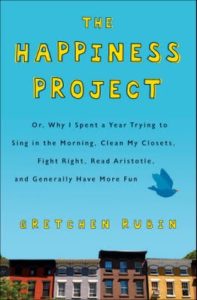
The Happiness Project describes Gretchen Rubin’s one year journey of resolutions that she kept each month to make herself happier. It’s a very personal memoir documenting her journey, mixed with research findings about happiness. Here are some parts that I resonated with me:
- Chicken & egg nature of happiness
- Happy people find it easier to get and stay married than unhappy people do, because happy people make better dates and easier spouses. But marriage itself also brings happiness, because it provides the support and companionship that everyone needs.
- Being happy energizes you, and at the same time, having more energy makes it easier for you to engage in activities - like socializing and exercise - that boost happiness.
- Happy outperform the less happy. They work more hours each week, they tend to be more cooperative, less self-centered and more willing to help other people. They work better with others, because people prefer to be around happier people.
- One of the best ways to make yourself happy is to make other people happy. One of the best ways to make other people happy is to be happy yourself.
- Marriage
- Happiness has a particularly strong influence in marriage because spouses pick up each other’s moods so easily.
- we hugged for at least six seconds, which, I happened to know from my research, is the minimum time necessary to promote the flow of oxytocin and serotonin
- in marriage, it’s less important to have many pleasant experiences than it is to have fewer unpleasant experiences, because people have a “negativity bias”. It takes at least five good acts to repair the damage of one destructive act.
- marital satisfaction drops substantially after the first child arrives.
- Friendship
- Having strong social bonds is the most meaningful contributor to happiness.
- Help people think big, words of enthusiasm and confidence from a friend goes a long way
- You tend to like people who you think like you
- It’s easier to befriend someone who is already a friend of a friend.
- Show a vulnerable side and laugh at yourself
- People are more apt to feel close to a family member who often expresses affection than to one who rarely does
- Work
- Enthusiasm is more important to mastery than innate ability, it turns out, because the single most important element in developing an expertise is your willingness to practice.
Overall, it was a quick and interesting read about happiness.
Rule 1 in Jordan Peterson’s “12 Rules for Life” is to stand up straight with your shoulders back in life, both literally and figuratively. He first explains how birds and lobsters establish a dominance hierarchy among themselves over shared resources:
“The wiliest, strongest, healthiest and most fortunate birds occupy prime territory, and defend it. Because of this, they are more likely to attract high-quality mates, and to hatch chicks who survive and thrive. Protection from wind, rain and predators, as well as easy access to superior food, makes for a much less stressed existence. The poor and stressed always die first, and in greater numbers."







